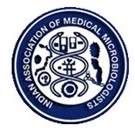The Department of Clinical Virology at Christian Medical College, Vellore celebrated its Golden Jubilee in the year 2017, has its roots going back to the 1950’s and 60’s with CDC supported Enterovirus research laboratory headed by Dr. Roger Feldman. In 1968, Dr.T Jacob John took over as head and this laboratory became a unit under the department of Microbiology. Dr John combined research and diagnostic services; thus the lab became a full-fledged diagnostic virology lab in 1968, the very first one in India. The lab could diagnose enteroviruses, arboviruses, respiratory viruses, herpes viruses, measles, mumps,rubella and varicella viruses.
In 1986 the Department of Virology was designated the National Reference Centre for HIV and AIDS, a position it continues to hold till date. In 1987 the Virology department designed blood donor screening safety protocol for HIV,piggy-backed on the already established hepatitis B testing – another first in the entire world of developing countries. In 1995 CMC designated this virology laboratory as Department of Clinical Virology. Under the guidance of Dr. G. Sridharan, the then head expanded the diagnostics systems by introducing several molecular tests. The Department has three main divisions namely, Hepatitis laboratory, Cell culture based diagnostic laboratory and Retrovirus laboratory. The state–of-the–art laboratory is currently providing routine clinical virology services for the Christian Medical College (CMC), Vellore, India a 2700 bedded hospital and its outreach clinics and mission hospitals.
The department obtained accreditation with the National Accreditation Board for Testing and Calibration Laboratories (NABL) in 2011 for ISO 15189:2012. It is one of the few Virology laboratories associated with a medical college having one of the largest repertoires of assays offered. This includes serological, virus isolation techniques and viral molecular diagnostic tests for patient care offered under the supervision of experienced virologists. The department has been participating in the proficiency Testing (PT) with UK National External Quality Assessment Service (UKNEQAS), Royal College of Pathologists of Australia (RCPA), Quality Assurance Programme and WHO HPV laboratory network. The laboratory also serves as a National HIV Reference Laboratory (NRL) for NACO. The department thus has a unique profile in the country.
Proficiency testing (PT) program become an integral part of the diagnostic laboratories as it improves the technical competency and confidence in providing quality report to the patients. Our department started the first virology proficiency testing (CMCVIROEQAS) programs in India from 2017 with an overall aim of enhancing the quality of the virology assays in laboratories across the country. We are very pleased and honored, to continue the EQA program in India along with Department of Clinical Microbiology, CMC under the aegis of Indian Association of Medical Microbiologists (IAMM).
CMCVIROEQAS PT scheme has got two different parameters namely serological and molecular. There are 5 panels for the serological parameters and 7 panels for molecular. Of the molecular 4 are quantitative and other three are qualitative. There are 3 surveys for all serological panels and 2 surveys for molecular panels. In each survey the number of challenges for serological schemes are 20 while for quantitative molecular schemes there are 8 challenges and for qualitative molecular there are 10 challenges. Serology panel includes markers for BBVS, Dengue, Acute Hepatitis, Hepatitis B Virus and Immune screen. The quantitative molecular panel include 4 different viral markers like HIV-1 RNA, HBV DNA, HCV RNA and CMV DNA and qualitative are Dengue, respiratory viruses including SARS CoV-2 and Neurotropic viruses. The serological survey panels will be dispatched in the month of March, July and October and the molecular will be dispatched in the month of March and July. The registration for CMCVIROEQAS starts from 1st January every year and will end by 28th of February.
Hope this program will help all the participants

